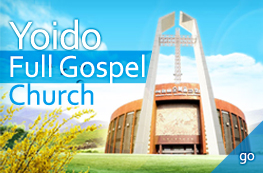The Korean church is endeavoring to create a new ecumenical body consisting of existing ecumenical councils and major denominations, ahead of the 500th anniversary of the Reformation. However, the date of launch has repeatedly been postponed, and now some believe it will be difficult to reach agreement before year end.
Last September, major denominational heads and executive directors of the Christian Council of Korea (CCK) and the Communion of Churches in Korea (CCIK) declared their intent to work toward uniting the Korean church and their goal to finish the process by November.
The main reason for the struggle that has slowed down the process, at least on the surface, is that CCIK has presented various issues on which they disagree with CCK. These include the matter of heretical groups, the exclusion of voices of medium and small denominations, and CCK’s non-acceptance of persons it sent to be included in the unity promotion committee.
Jeong Seo-yeong, newly appointed CCK executive director, said, “Efforts to unite CCK and CCIK have to be done by the two organizations. Collaboration by the Denominational Heads Council is good, but if it tries to lead the process, unity may become difficult to achieve.”
The formal decision-making process at CCIK includes the board meeting, the executive committee meeting, and finally the general assembly. Major decisions, however, are usually made at the board meeting, in which former CCIK executive directors participate.
These former CCIK directors took the lead in criticizing former CCK executive director Hong Jae-cheol for abusing his authority, and in establishing CCIK. The problem is that their voice will shrink when Korean church unity is achieved.
A source familiar with the inner workings of CCIK said, “In discussing how to unite the Korean church, it is a must to allow former executive directors to contribute to this process. If CCIK does not lead the discussion, discussion itself will be not easy.”
The promotion committee has not respected this decision-making environment of CCIK, and has included in its membership PCK Daeshin moderator Lee Jong-seung and former PCK Tonghap moderator Chae Yeong-nam, instead of persons sent by CCIK.
Yeo Seong-sam, moderator of the Korea Evangelical Holiness Church, who has been participating in the unity promotion committee meetings as a CCIK member, said, “CCIK disagrees with the present form of unity discussions. The unity efforts should include the former CCIK executive directors so that they can bring the entire CCIK to the unity, even though this may slow down the process. Korean church unity must be realized through agreement with each other on large issues first, dealing with the specifics later.”
“CCK and CCIK must carefully read the hearts of the public. If the church looks the same as the extremely divisive political circles, the young generation will turn their backs on us. The church leaders should abandon their particular interests and look at the big picture. I ask them to be one and serve the people.” (Rev. Lee Chun-myeong, Iksan Jeongdaun Church)
Currently the reunion task force is the Korean Church Unity Promotion Committee, formed by the Korean Church Council of Denomination Heads, CCK, and CCIK. This consultative body guarantees its public trust by including all major denominations: Presbyterian, Methodist, Holiness, Full Gospel, and Baptist. There are 10 members in the committee: five from CCIK, three from CCK, one from PCK Hapdong, and one from KMC. In terms of denominational size, eight are from large denominations and two are from medium or small denominations.
Rev. Park Song-sun, senior pastor of Choongshin Church, is a former executive director of CCK and a past president of NCCK. He commented, “All agree that the Korean church should become one. But they all say different things when they discuss how to do it.” He warned, “God is calling us to come together as one, and this is the strong wish of Korean church members as well. If trivial or individual interests get in the way and this call of the age is rejected, those involved will have to take ultimate responsibility.”
For now, the toughest obstacles to the reunion efforts are 1) how to honor former CCIK executive directors, and 2) whether or not to include in the reunion small denominations that do not have seminaries approved by the Education Ministry. The unity promotion committee must consider these matters. CCIK, too, should be proactively involved in the discussion.
Former CCIK executive director Cho Il-lae said, “The unity promotion committee has to accept the four committee members sent by CCIK, and CCIK must participate actively in discussing how to unite the Korean church… Leaders of church circles must abandon such positions as ‘What I say is right,’ or ‘I have to be the one,’ and instead, listen first to their dialogue partners.”
Reporter Paek Sang-hyun (100sh@kmib.co.kr), with Yeara Ahn-Park (yap@kmib.co.kr)
Full Story in Korean:
[한국교회 연합 왜 늦어지나 (상)] 자꾸 늦춰지는 ‘연합 완료 시한’ 큰 틀 합의 후 세부사항 풀어야
[한국교회 연합 왜 늦어지나 (하)] “교회가 정치권처럼 분열” 젊은 세대 등 돌려
Related Articles:
“Unity of Church Councils” To Be Completed by Yearend
CCK, CCIK and CDH Announce “Declaration for Korean Church Unity”
Final Steps to Unite Church Councils Is Postponed Pending Basic Agreement
2016-12-16 17:37


